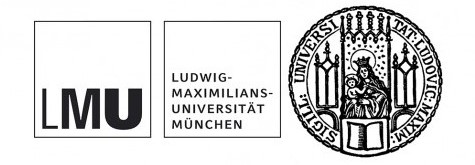From 24th to the 26th June 2022, the first in-person meeting of our Russian Ecospheres network took place in Berlin. After online contacts and some preparatory group work earlier this year, the focus was on familiarizing ourselves with our fellow scholars and their work and on discussing relevant paradigms formative for our research. Interactive formats such as joint text reading, group work, and conceptual-historical investigations were experimented with to provide a common theoretical and historical basis for further work.
Day 1:
First Panel:
After an introduction on the structure, the network’s programmatic and a preliminary timeline, the first panel was devoted to joint readings of basic texts in the field. The reading of Peter Sloterdijk, Vladimir Solov’ev and Vladimir Vernadskii brought to light the different roots and understandings of the concept of the sphere. As we learned, Sloterdijk conceives of man as a sphere-forming being that produces structures of immunization and life-forms of interiorization. While he sees man as a shaper of his environment and “Lebenswelt“, Vernadskii conceptualizes man as a heterotrophic organism dependent on interaction with plants and animals. At the same time, humans are a central and unique, literally geological force in the biosphere, since only they are capable of totally reshaping it through mind and will. This diagnosis makes Vernadskii a pioneer of the Anthropocene paradigm widely discussed today.
This discussion was followed by a debate on Friedrich Engels’ “Dialectic of Nature“, a work of central relevance to the socialist understanding of nature. Engels outlines the evolutionary stages enabling man to influence his environment, but also acknowledges the limits of his influence, since his endeavors, in many cases, turn against him and his achievements. Finally, Dmitrii Likhachev’s influential essay “The Ecology of Culture” was read. Likhachev pleads for the expansion of ecology into cultural theory in the late 20th century. He diagnoses a simultaneous crisis of nature and culture and argues for a basic preservationist attitude toward cultural heritage, which puts him at a distance from the Soviet modernization project.
Second Panel:
The second conference panel introduced key terms and concepts for ecological thinking in the Russian context. Tatjana Petzer presented different notions of zone in geography, sociology, climatology, urbanistics, culture and other areas and traced the ecological career of this multi-faceted concept. Elena Fratto continued the section with a talk on metabolism, pointing towards similarities and differences in the understanding of this key term in 19th century thought, particularly in Justus Liebig and Karl Marx. Philipp Kohl, finally, explained varying notions of irreversible processes, the notion of which is closely linked to the second law of thermodynamics and the idea of entropy.
Day 2:
First Section:
After concluding day one with a joint dinner, the following day started with talks on the state of research in the fields linked to ecology in Russian culture and history and beyond. Timm Schönfelder, who is pursuing a post-doctoral project on 19th century hunting, opened the section with a contribution on the history of hunting which he looked at through the lens of human-animal studies. Colleen McQuillen followed him with a talk on energy humanities, examining interlinkages between energy and culture and giving a short insight into her own research on coal and culture in the Donbas. Andy Bruno, in the third talk of the section, introduced the recently emerging paradigm of Planetary Humanities central to the theoretical work of thinkers such as Dipesh Chakrabarty, Frédéric Neyrat and Gayatri Spivak. They share the aim of developing a non-anthropocentric view towards the conditions of survival of earth in the age of climate change.
Second Section:
After lunch, Clemens Günther took up this climatological thread in his talk on literary meteorology, a theoretical paradigm popularized in German studies and linked to the aesthetic semanticization and cultural epistemology of weather and climate phenomena. Julia Herzberg concluded this section with a contribution on the Russian cold and climate ideas in Russia and beyond, with a special focus on the 18th century and the ideas on the relation between character and climate from this period that are still influential today.
The second day of the conference was eventually completed by a keynote talk by our meeting guest Julia Lajus, a current fellow at the Max Planck Institute for the History of Science, who had left Russia after the invasion in Ukraine. She gave a talk on natural resource inventories in Russia during WWI and referred to various scientific and infrastructural projects trying to overcome past dependencies on foreign imports, a topic of great relevance in light of today’s Western sanctions against Russia.
Day 3:
The third and final day of the conference was focused on the preparation of a handbook on Russian ecological thinking. Publishing this handbook is one of the key projects of the network, striving to provide a valuable source for understanding key concepts and discourses of ecology in the history of the Russian and Soviet empires. After initial input from a working group that had already been formed earlier this year and which presented potential ideas for structuring the handbook, a group work section discussed two potential sub-sections of the handbook, one on Empire & Ecology and one on Green Culture. The concluding discussion took up the ideas gathered together and agreed on further steps for preparing the handbook.



